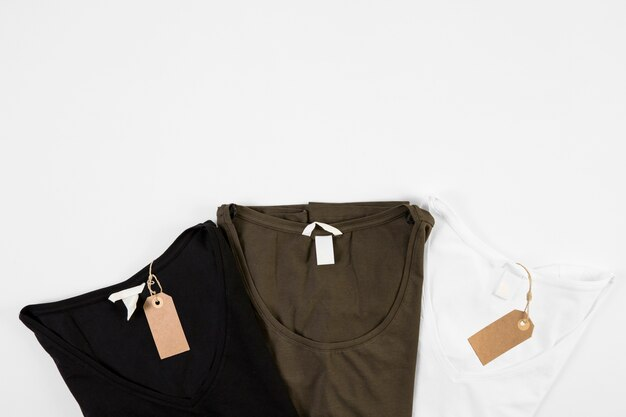
Puzzled by fabric labels like GOTS and OEKO-TEX? You’re not the only one. If you care for these tags that claim certainties like safe or organic. There is always some form of stress knowing what matters.
If the welfare of your kids' skin or the Earth matters to you, these certifications and understanding them are very helpful. In this blog post, I will tell you the actual significance of these two labels and how you can pick the best one that meets your requirements.
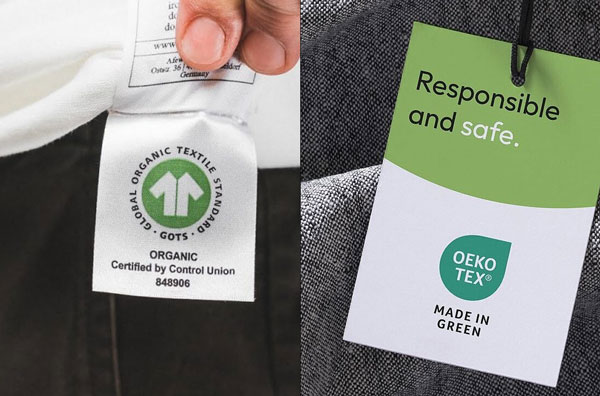
GOTS stands for Global Organic Textile Standard. It is an award or label of certification for a garment or textile. It informs you that the material has been produced in a hygienic and environmentally friendly manner.
First and foremost, the material should be composed of natural fibers such as organic cotton. This indicates that no harmful substances are utilized during cultivation. Thus, it is more beneficial for your skin and healthier for the environment.
Next, GOTS reviews how the fabric is produced. There are guidelines to maintain air and water pollution-free. Only non-toxic fabric dyes and no hazardous substances should be used for processing.
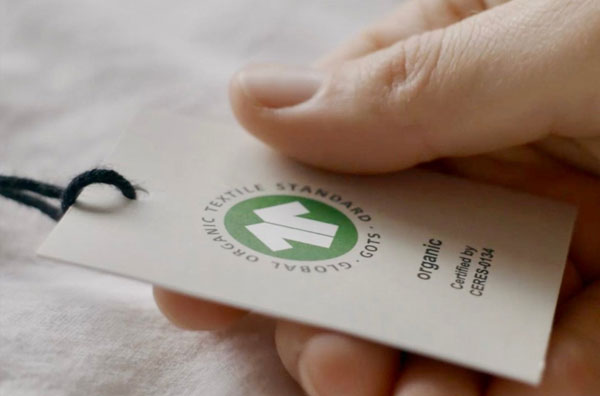
Moreover, GOTS looks after the welfare of its employees. Fair payment is the least that can be paid. Reasonable working conditions must also be in place. Most importantly, child labor should not exist.
Due to these restrictions, many quality companies utilize GOTS-certified textiles. If you wish to don garments that are considerate, safe, and environmentally friendly, this label is an excellent option.
OEKO TEX is a label that signifies safety. Its full name is OEKO-TEX Standard 100. It proves that a material has been analyzed and found safe to use. This label verifies whether fabrics such as garments, bedsheets, towels, and similar items contain toxic substances.
If this label is present on the product, it indicates that toxic chemicals such as lead, formaldehyde, and heavy metals are not included. This is the process: every component of a product undergoes testing, including threads, buttons, zippers, and even prints.
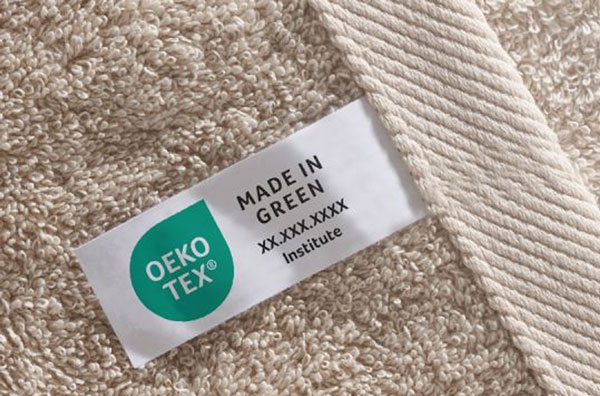
There are specialized laboratories that perform these tests. If all criteria are met, OEKO-TEX 100 certification is awarded. You can spot this label on numerous items such as infant apparel, t-shirts, socks, bed sheets, and even couch slipcovers.
It’s an ideal option if you are looking for something that is safe for your skin and your family. So, Oeko Tex Standard 100 assures you the product is clean and trusted.
Both GOTS and OEKO-TEX are certified labels that are trusted by people; however, they are not the same. Each label checks different aspects of textiles and follows different rules. In this section, we will discuss the difference between GOTS vs OEKO-TEX:
| Feature | GOTS | OEKO-TEX Standard 100 |
| Main Focus | Organic materials and safe production | No harmful chemicals in finished products |
| Fiber Requirement | Must have at least 70% organic fibers | No need for organic fibers |
| Checks for Chemicals? | Yes, in dyes and process materials | Yes, in all parts of the final product |
| Cares for Workers? | Yes, includes social rules and fair work | No, focuses only on product safety |
| Cares for the Environment? | Yes, strict eco-friendly rules | No, it does not check factory impact |
| Common Products | Organic clothes, eco-fashion, baby wear | All textiles: clothes, sheets, furniture |
Elenora from Quora mentioned that the Global Organic Textile Standard (GOTS) is considered the top certification in the world for textiles that use organic fibers. It has extensive social and environmental criteria, monitoring each stage of the sourcing and production process.
She noted that the whole procedure is confirmed by third parties, which makes GOTS a trusted and reliable option for people concerned about sustainable and ethical production.
Selecting fabrics with certifications goes beyond picking a product; it involves choosing safety, trust, and concern. Let us examine the main advantages associated with each certification.
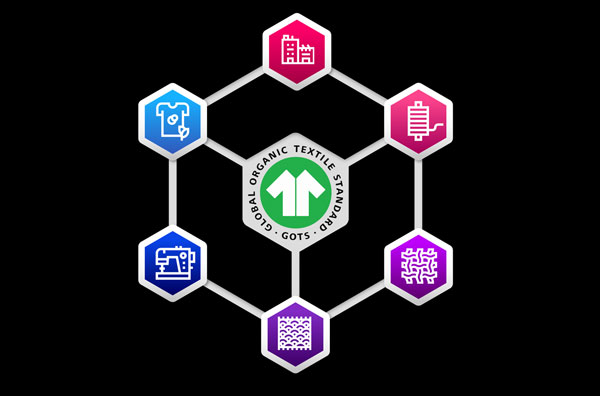
· Organic and Natural: Your skin and the world are healthier with organic fibers.
· Safe Production: Besides, no toxic substances are allowed in the procedure.
· Fair to Workers: Plus, fair wages and good working environments are ensured by GOTS, which protects the workers.
· People Still Trust It: Because of this, numerous brands turn to it for selling in international markets.
· Good for Sensitive Skin: Lastly, great for babies or anyone who suffers from skin allergies.
On the other hand, OEKO-TEX places greater importance on safety concerns.
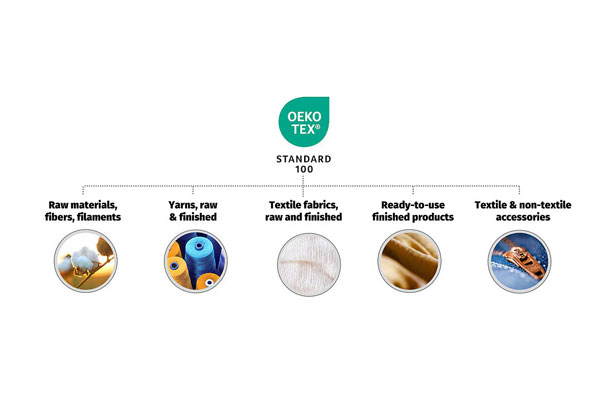
· Chemical Free Safety: It looks closely at every aspect of the product to ensure there are no dangerous chemicals present.
· Safeguards Wellness: For this reason, it’s effective for infants, minors, and grown-ups.
· Includes All Products: This tag can be found on other household fabrics like towels and bed sheets.
· Quick and Easy to Get: For many products, OEKO-TEX is quicker and easier than GOTS.
· Boosts Trust: Most importantly, it ensures purchasers that the product has undergone evaluation and is safe.
Confused about what fabric label suits you best? Be it for personal or business reasons, here we will discuss how to select the most suitable certification according to your requirements.
· Select GOTS if you are selling organic apparel or sustainable merchandise.
· GOTS helps in reputation building with eco-conscious customers.
· Ideal for infant items, sustainable fashion, and international trade.
· Select OEKO-TEX if your priority is avoiding exposure to dangerous substances, even if the material isn’t organic.
· For a larger selection of products, OEKO-TEX certification is quicker and simpler to obtain.
· This certification works well for basic goods such as bedsheets, uniforms, and other household textiles. Businesses such as Kute Tailor leverage GOTS and OEKO-TEX certifications to provide safe, reliable, and high-quality fabrics for modern brands.
· Pick GOTS if you are looking for clothes that are natural, organic, and safe for your skin while also protecting the planet.
· Suitable for sensitive skin, babies, and children; GOTS certifies healthy fabrics.
· Select OEKO-TEX if you would like apparel that does not contain dangerous chemicals, regardless of whether they are organic or not.
· Such labels prove wise when purchasing school uniforms, undergarments, or household textiles.
In Short, both GOTS and OEKO-TEX are valuable fabric certifications. If your priority is purchasing organic and eco-friendly garments, then GOTS is the best option for you. On the other hand, if your focus is on avoiding harmful chemical residues in textiles, then OEKO-TEX would be better suited.
Both of them assist you in making safer and more informed decisions. At KuteTailor, we prepare custom clothes that meet the GOTS and OEKO-TEX certifications. This indicates our products are effective, safe, environmentally friendly, and beneficial for you. Opt for fabrics that have certification, and you will surely feel the difference.